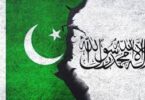In an interview with a group of foreign journalists, Prime Minister Imran Khan expressed optimism about better chances of peace talks with India if his counterpart Narendra Modis Bhartia Janata Party wins general elections. His analysis is that if opposition Congress Party wins polls its leadership will not be in a position to seek settlement of Kashmir because of likely backlash from right wing political parties. This realisation is in contrast with his earlier tweet accusing Indian Prime Minister Narendra Modi and Israeli Premier Benjamin Nethenyahu of defying international laws and resolutions as the former wants to annex Kashmir and later has announced annexation of Jewish settlements on the west bank in Palestine.
Prime Minister’s later assessment of the BJP leadership is quite opposite to the bottom-line of Foreign Minister Shah Mehmood worrying revelations which he made the other day in a press conference at Multan, revealing that India is planning a new military action against Pakistan in the third week of current month for which a Pulwama type episode may be cooked again. The Foreign Minister based his claim on authentic intelligence report and urged international community to reprimand India on its aggressive designs against Pakistan. On the same day foreign office called India’s Deputy High Commissioner and handed him over a demarche in line with foreign Minister’s statement.
In a critical comment on the Prime Minister’s assessment on Pak-India relations in case of BJP win, PPP Senator Sherry Rehman said that Pakistan does business with India as a state and said that Prime Minister’s preference of dialogue with certain candidate is unrealistic. The reaction of this shrewd and intelligent politician, who also served as ambassador to the United States, seems justified when seen in the context of glaring contradiction in the style of leadership of Nrendra Modi over the past five years. His body language used to be very conciliatory while holding meetings with former Prime Minister Nawaz Sharif on the international forum and on the eve of his participation in birth day party of his Pakistani counterpart. But at the same time he did not give positive response to Pakistan’s efforts to resume the suspended composite dialogue process. Likewise, a narrative accusing Pakistan of promoting terrorism in the region was propagated in the capitals of world powers which damaged the soft image of Pakistan because the previous government refrained from building counter narrative to dilute the impact of Indian narrative.
In a rare show of personal friendship with Narendra Modi, former Prime Minister Nawaz Sharif went to the extent of excluding the mention of Kashmir dispute in the joint statement issued after their meeting held on the sideline of Shanghai Cooperation Organisation summit held in July 2015. The statement was issued by the then Pakistan’s Foreign secretary Aiazaz Ahmad Chaudhry and his Indian counterpart S. Jaishankar. A leading Indian English daily newspaper The Hindu in a comment published in its issue of 15th July interpreted it as new equation between the two countries. However, India continued ceasefire violations along the line of control and sometimes firing along the working boundary targeting both military targets and civilian population and eve school students carrying vehicles. Prime Minister’s diplomatic realisation, which must be based on ground realities, is synonymous with the perception created by the previous government about the Narendra Moodi after his assuming the office of office in May, 2014 which later turned out fallacious. Let us wait for the Indian election results.






